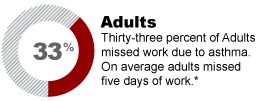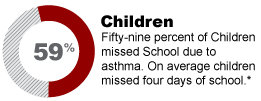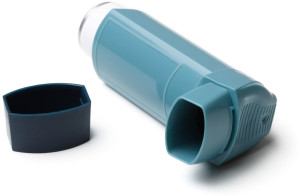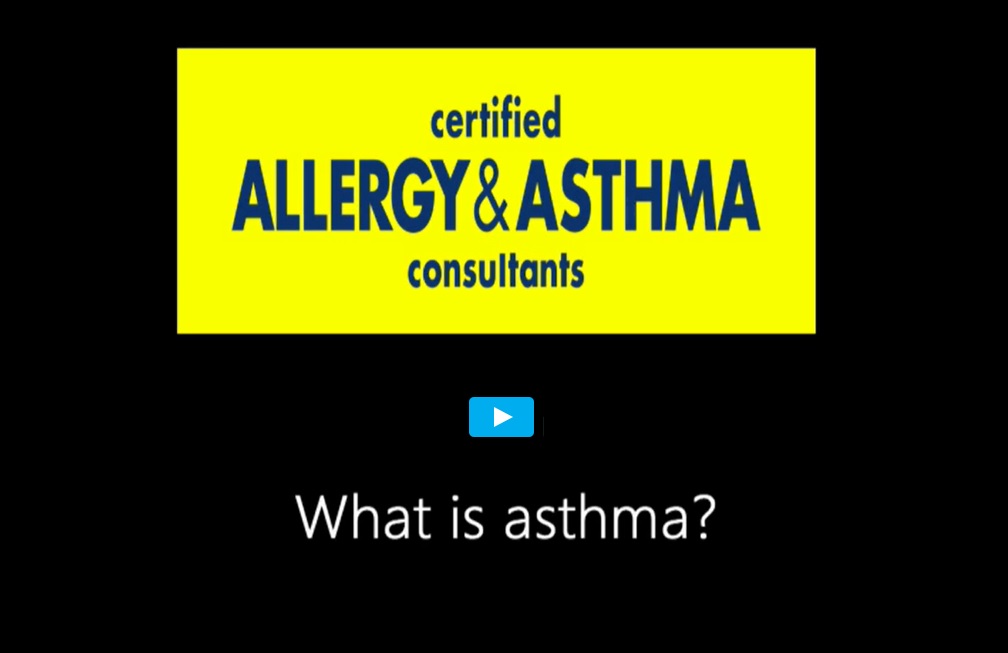What is Asthma?
Asthma is a chronic condition in which airflow in the lungs is restricted by swelling and narrowing of the bronchial tubes.
Common Symptoms of an Asthma Attack Include:
- Acute Shortness of Breath, Difficulty Breathing, Wheezing
- Coughing, Chest Tightness or Heaviness
- Tight or Dry Cough
- Shallow, Rapid Breathing
- Inability to Talk in Full Sentences
Individuals experiencing such symptoms should contact their physician immediately.


* Information provided by American College of Allergy, Asthma & Immunology
Asthma Diagnosis
Diagnosing asthma begins with the physician compiling a complete medical history including information about the home and work environment and performing a physical examination. Lung function tests are also performed to assess the amount of airway obstruction, along with allergy tests to identify whether allergic triggers are present. In some cases, lab tests and x-rays may also be used.
Asthma Treatment
Asthma cannot be cured, but symptoms can be controlled. Understanding asthma triggers and how to avoid or reduce their impact is an important part of the treatment process. Medications are available to relieve asthma symptoms, and to control asthma to prevent asthma attacks. Allergy therapy, including allergy injections, may also play a role in decreasing sensitivity to allergic triggers and improving asthma control.
 Patients may also be instructed on the use of a peak flow meter to help in assessing their response to treatment and to assist them in recognizing changes in lung function. The monitoring of changes in lung function can help in detecting early signs of increased symptoms before they become evident.
Patients may also be instructed on the use of a peak flow meter to help in assessing their response to treatment and to assist them in recognizing changes in lung function. The monitoring of changes in lung function can help in detecting early signs of increased symptoms before they become evident.
Periodic monitoring of asthma symptoms, lung function, and the effectiveness of the prescribed treatment plan is an important part of controlling asthma.
